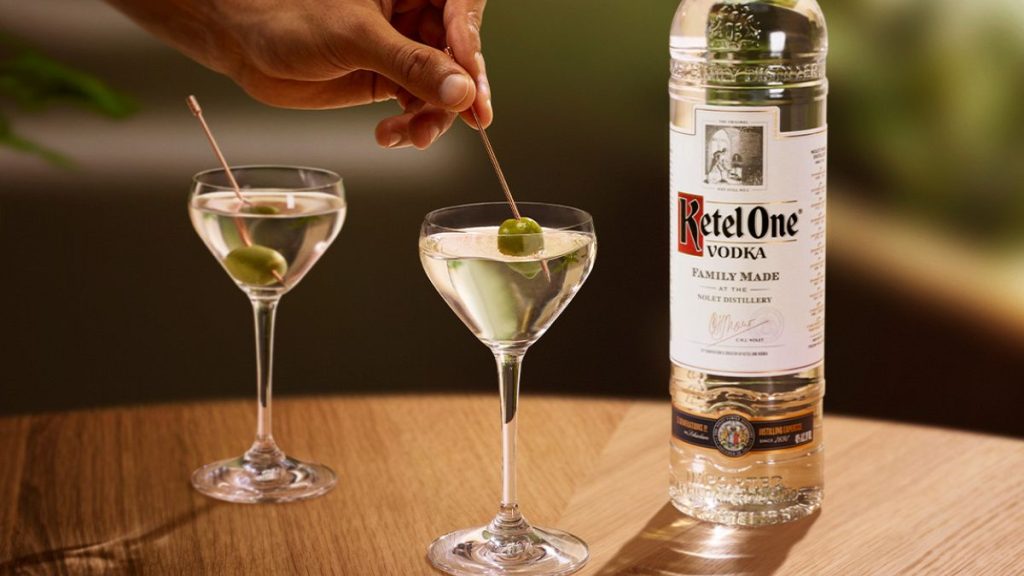Diageo Faces Trade War Headwinds and Removes Medium-Term Guidance
Diageo, the global beverage giant behind iconic brands like Johnnie Walker, Guinness, and Baileys, reported its interim results for the half-year ended December 31, 2024, revealing a mixed performance marked by modest organic sales growth and looming uncertainties related to escalating trade tensions in North America. The company withdrew its medium-term sales growth target of 5% to 7%, citing the unpredictable nature of the evolving global trade landscape, particularly the potential impact of US tariffs on imports from Canada and Mexico. This decision reflects the company’s cautious approach in the face of potential headwinds that could significantly impact its performance in the crucial North American market, its largest source of net sales.
Diageo’s vulnerability to these tariffs stems from its supply chain, which relies on imports of whiskey from Canada and tequila from Mexico for sales into the US market. The threatened 25% tariffs, though temporarily delayed, represent a significant risk to the company’s profitability. Diageo estimates a potential $200 million hit to its profits in the second half of 2025 if the tariffs are implemented. This uncertainty, coupled with a slowdown in recovery rates across several key markets, prompted Diageo to withdraw its medium-term guidance. The company, however, reassured investors of its commitment to providing regular trading updates and near-term guidance to navigate the current volatile environment.
Despite the challenges, Diageo reported a 1% increase in organic net sales, reaching $101 million. However, this growth was partially offset by a decline in volumes, indicating potential pressure on consumer demand. Reported net sales experienced a slight decline of 0.6% to $10.9 billion, attributed primarily to unfavorable foreign exchange movements. Similarly, reported operating profit fell by 4.9%, reflecting the impact of currency fluctuations and a weaker performance in the Moët Hennessy division, which affected earnings per share (EPS) pre-exceptionals, leading to a 9.6% decline. These results underscore the complex operating environment Diageo faces, navigating both global trade uncertainties and shifting consumer preferences.
The global cost of living crisis has contributed to a shift in consumer behavior, with many opting for more affordable beverage options, impacting demand for Diageo’s premium brands. This trend further complicates the company’s outlook and adds to the challenges posed by the potential trade war. Despite these headwinds, Diageo’s CEO, Debra Crew, expressed confidence in the company’s long-term prospects and ability to outperform the market, emphasizing strong performance in North America, driven by brands like Don Julio and Crown Royal, and the continued double-digit growth of Guinness. This optimism reflects the company’s focus on brand building, innovation, and market share gains to mitigate the impact of external pressures.
Analysts have offered mixed perspectives on Diageo’s performance and outlook. Some view the results as satisfactory, exceeding market expectations and signaling a stabilization in performance. The removal of the medium-term guidance, while potentially concerning to some investors, is seen by others as a realistic response to the current market dynamics. The previously set target, established during a period of exceptionally high pandemic-driven demand, is considered unrealistic in the current environment. The focus, therefore, shifts to Diageo’s ability to navigate the near-term challenges and capitalize on the anticipated recovery of the premium spirits market.
Other analysts express more cautious views, highlighting the cumulative challenges facing Diageo, including the tariff threats and the removal of guidance. The potential impact of US tariffs on Diageo’s pricing power and ability to pass on increased costs to consumers is a key concern. The flat dividend also reflects the company’s cautious stance in the face of an uncertain outlook. The pressure on sales of major spirits brands like Tanqueray, Gordon’s, and Smirnoff further underscores the challenges Diageo faces in maintaining growth momentum. The overall consensus points to a period of uncertainty for Diageo, with its future performance hinging on its ability to navigate trade tensions, adapt to changing consumer preferences, and leverage its brand strength to maintain market share.














